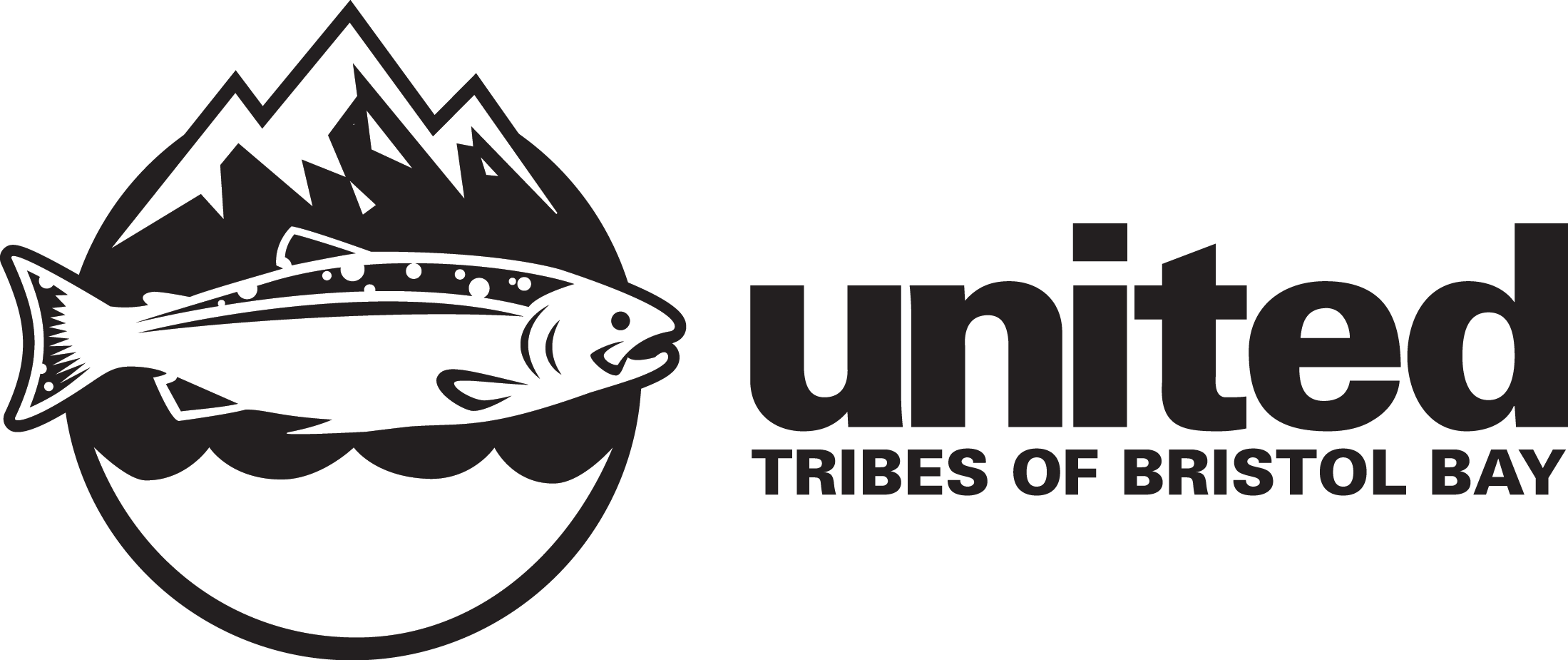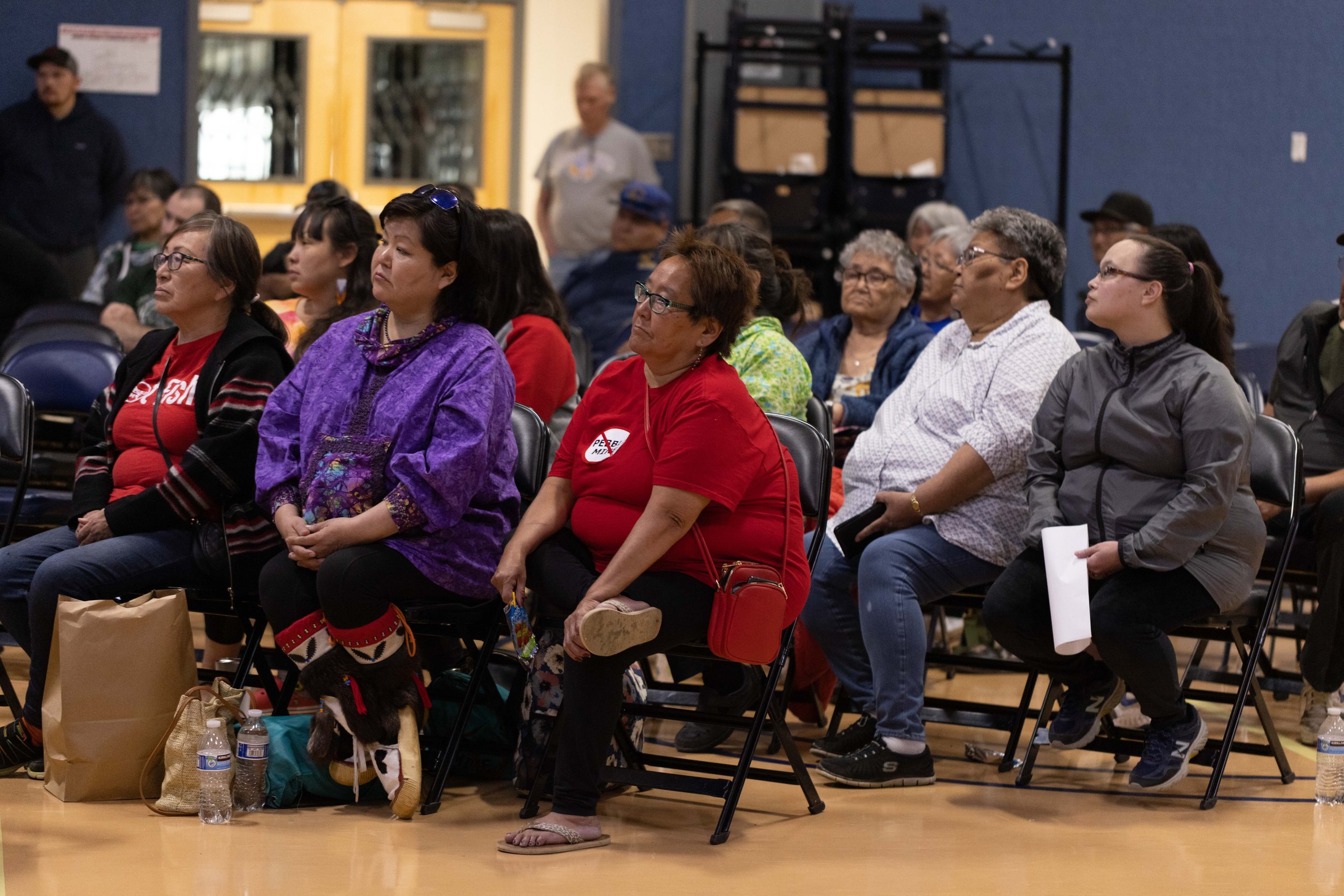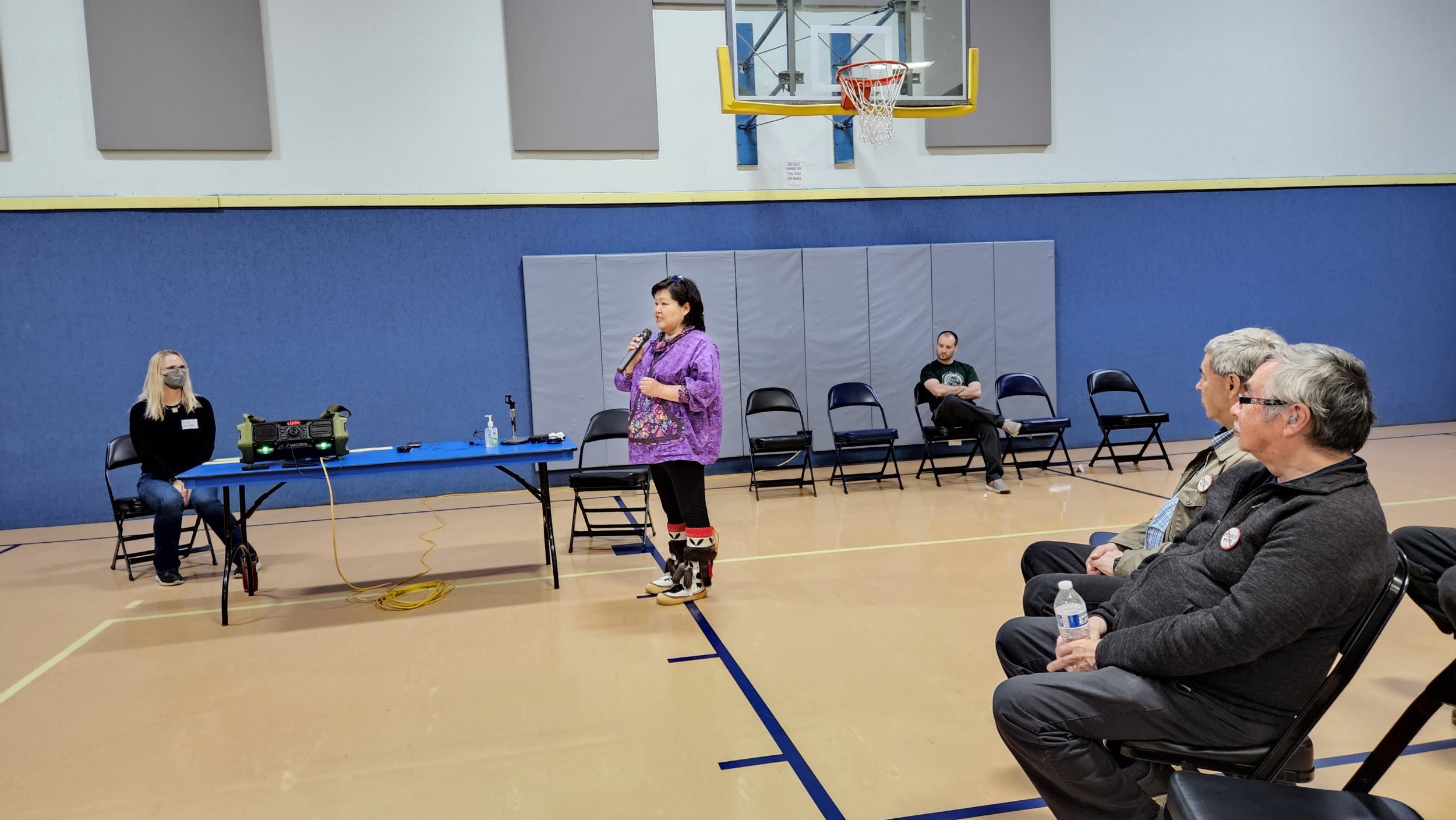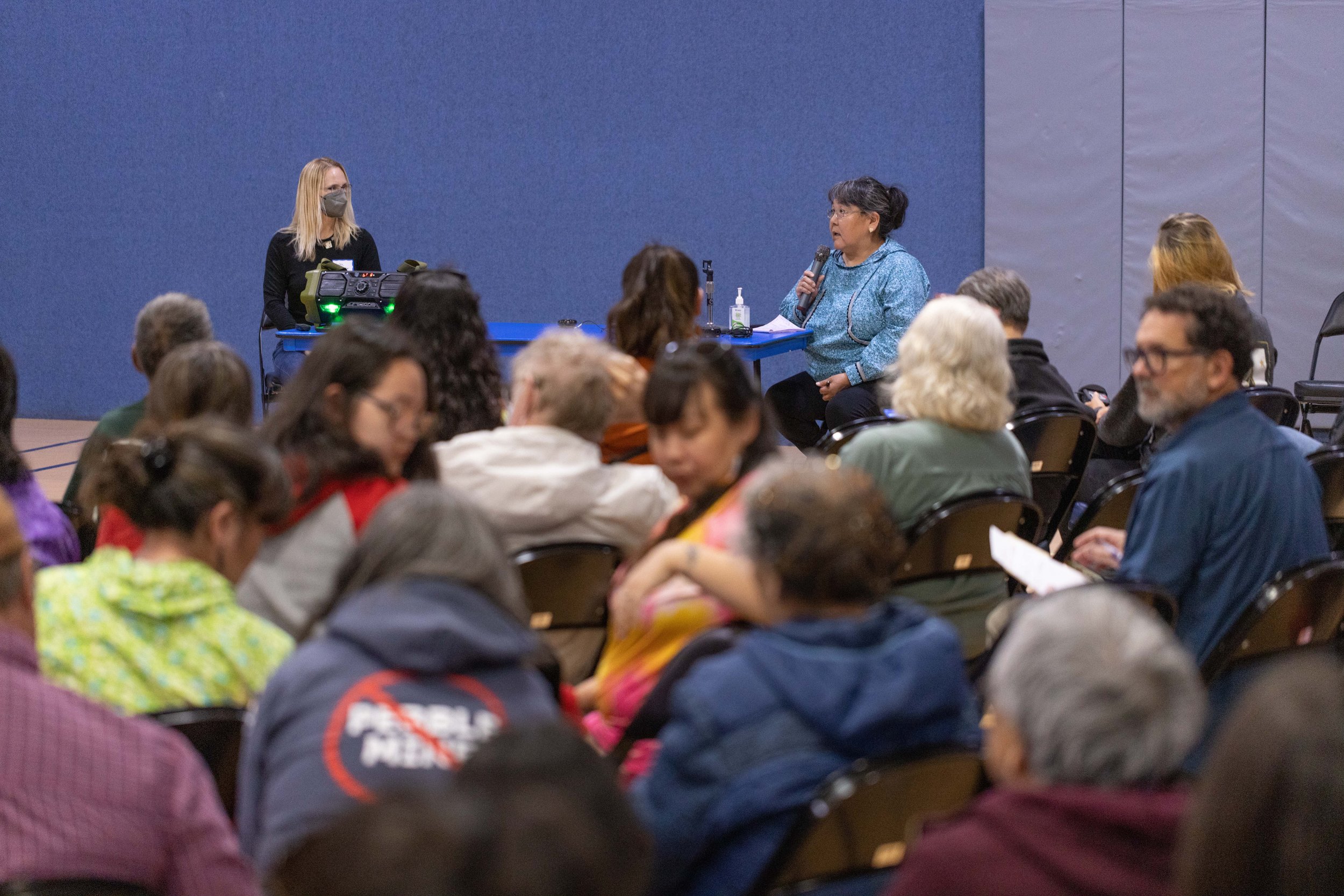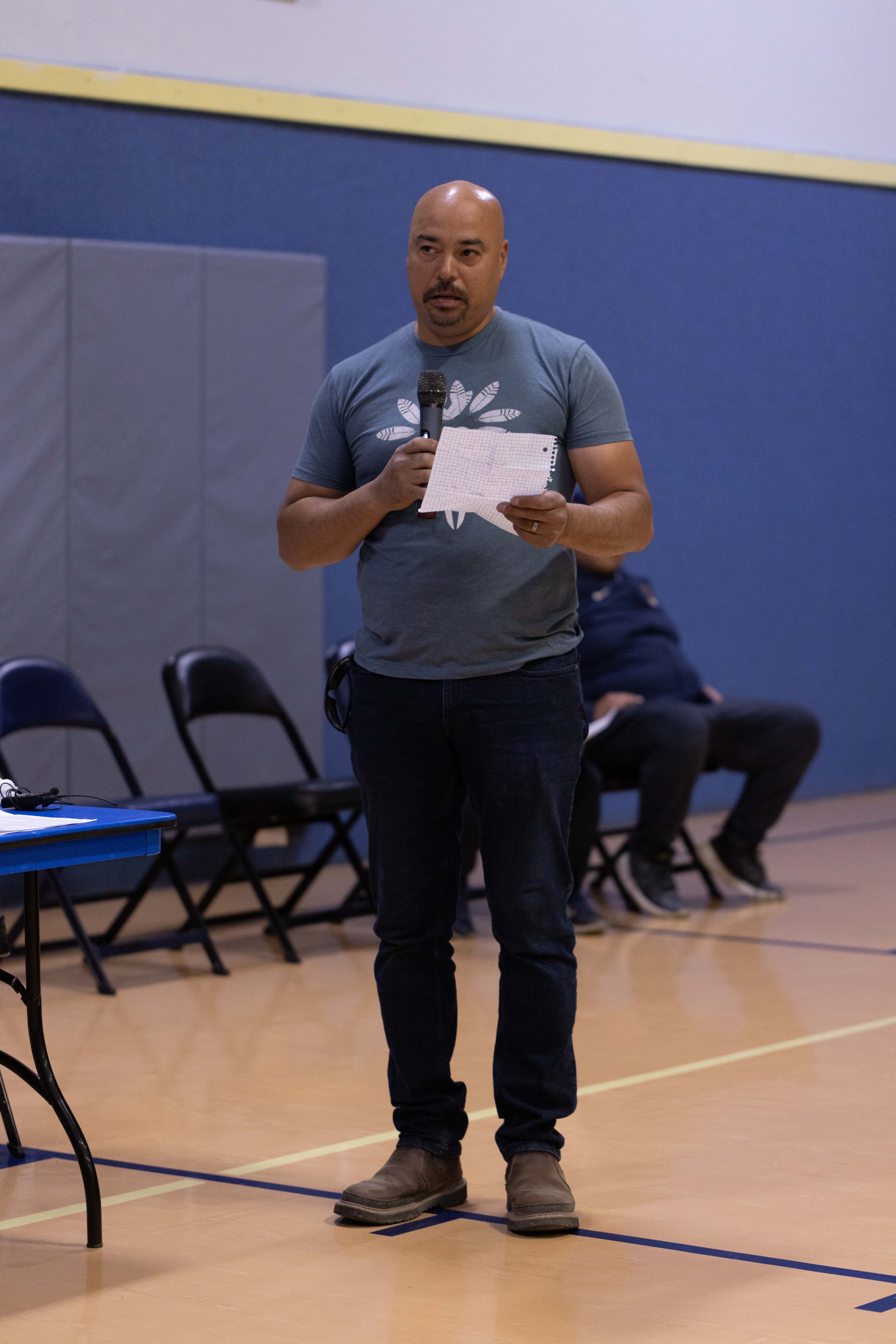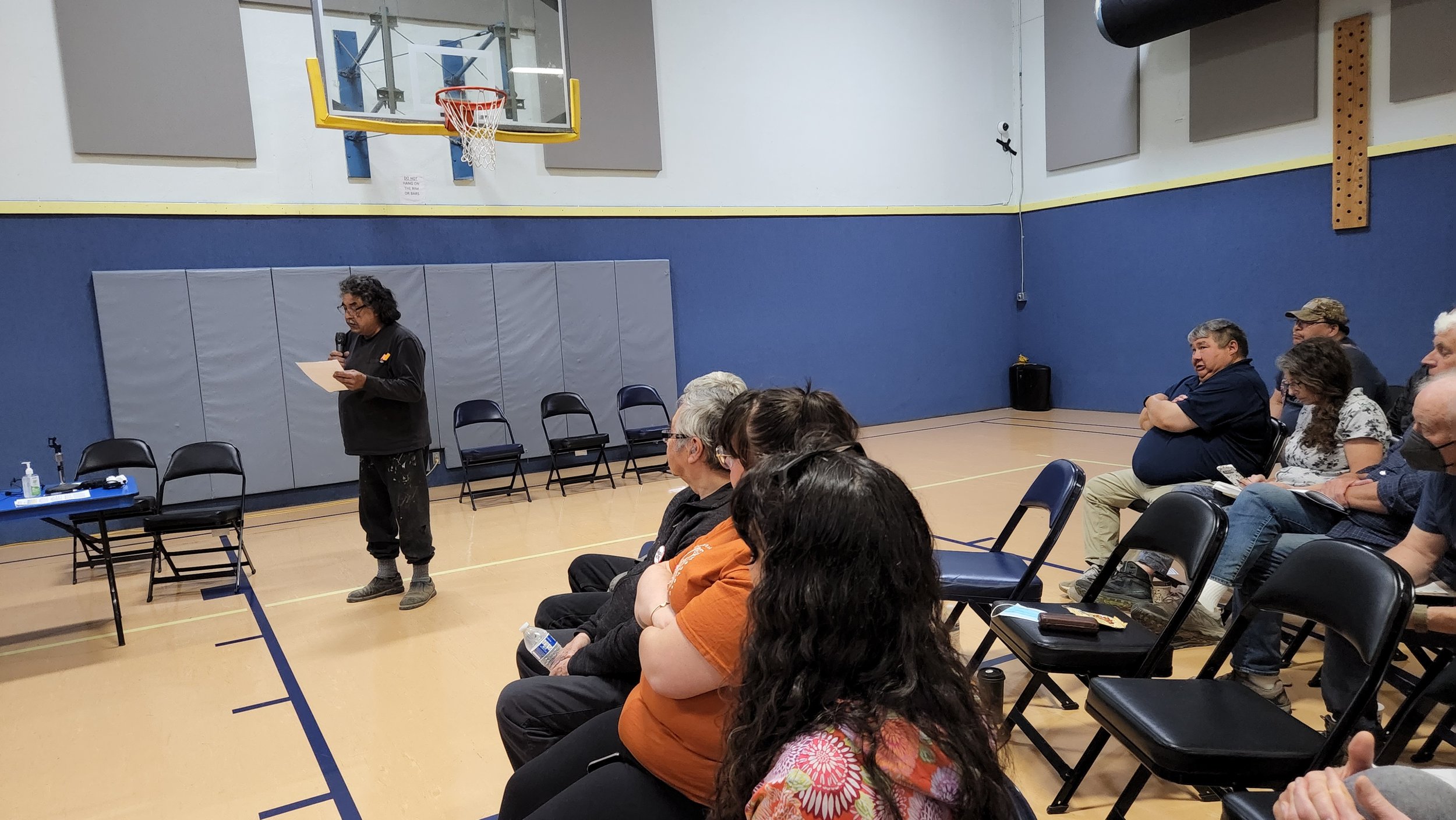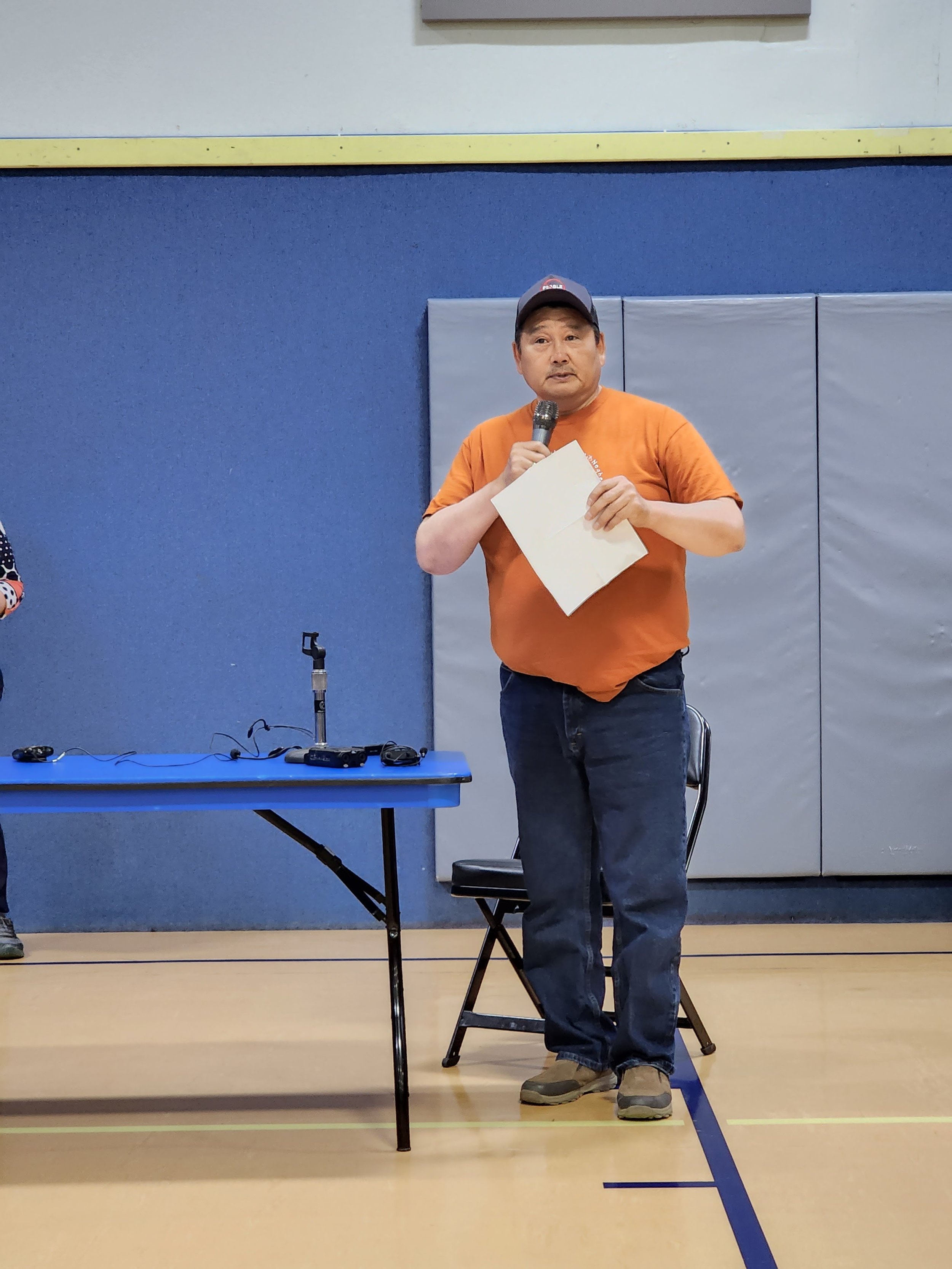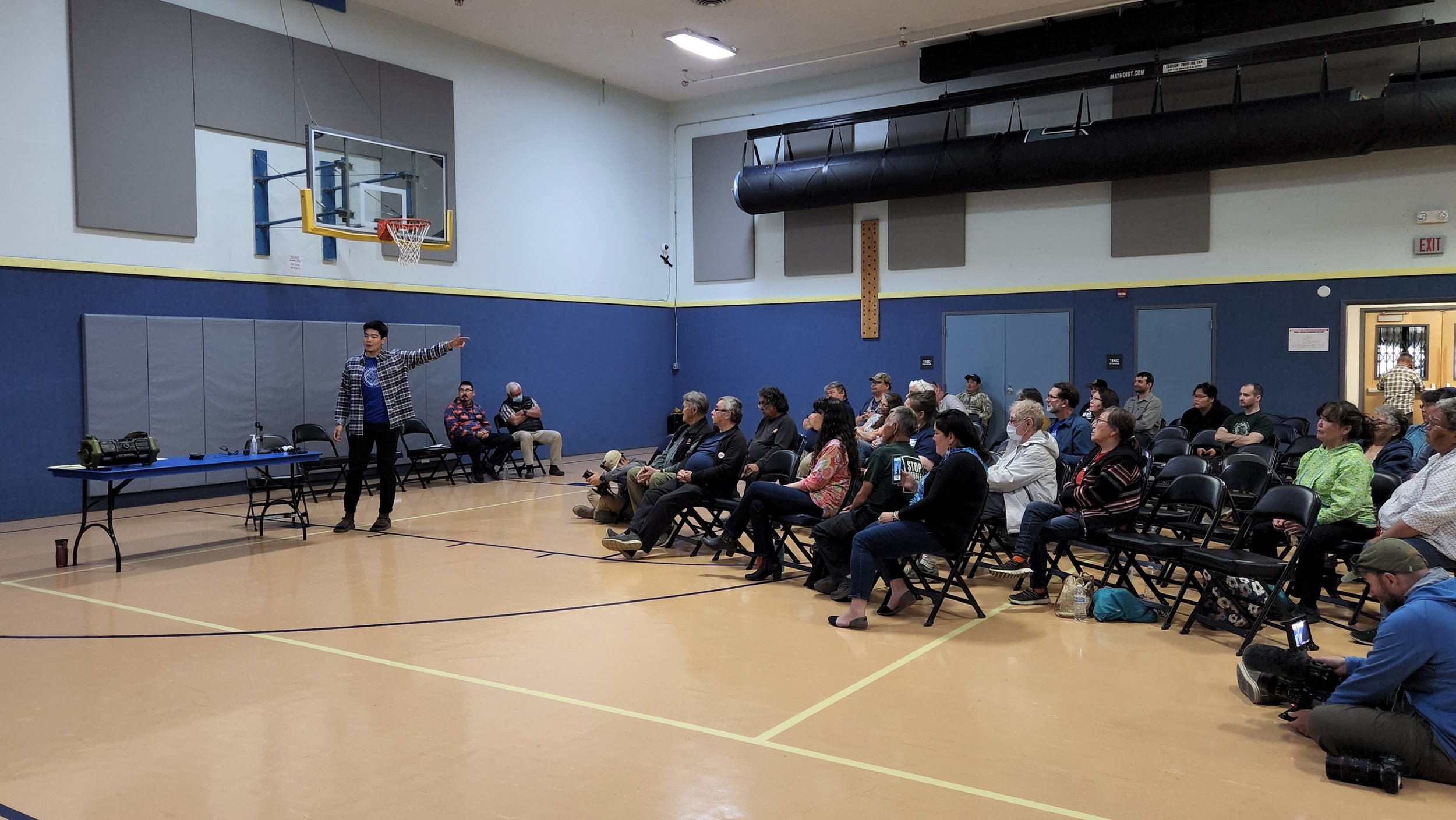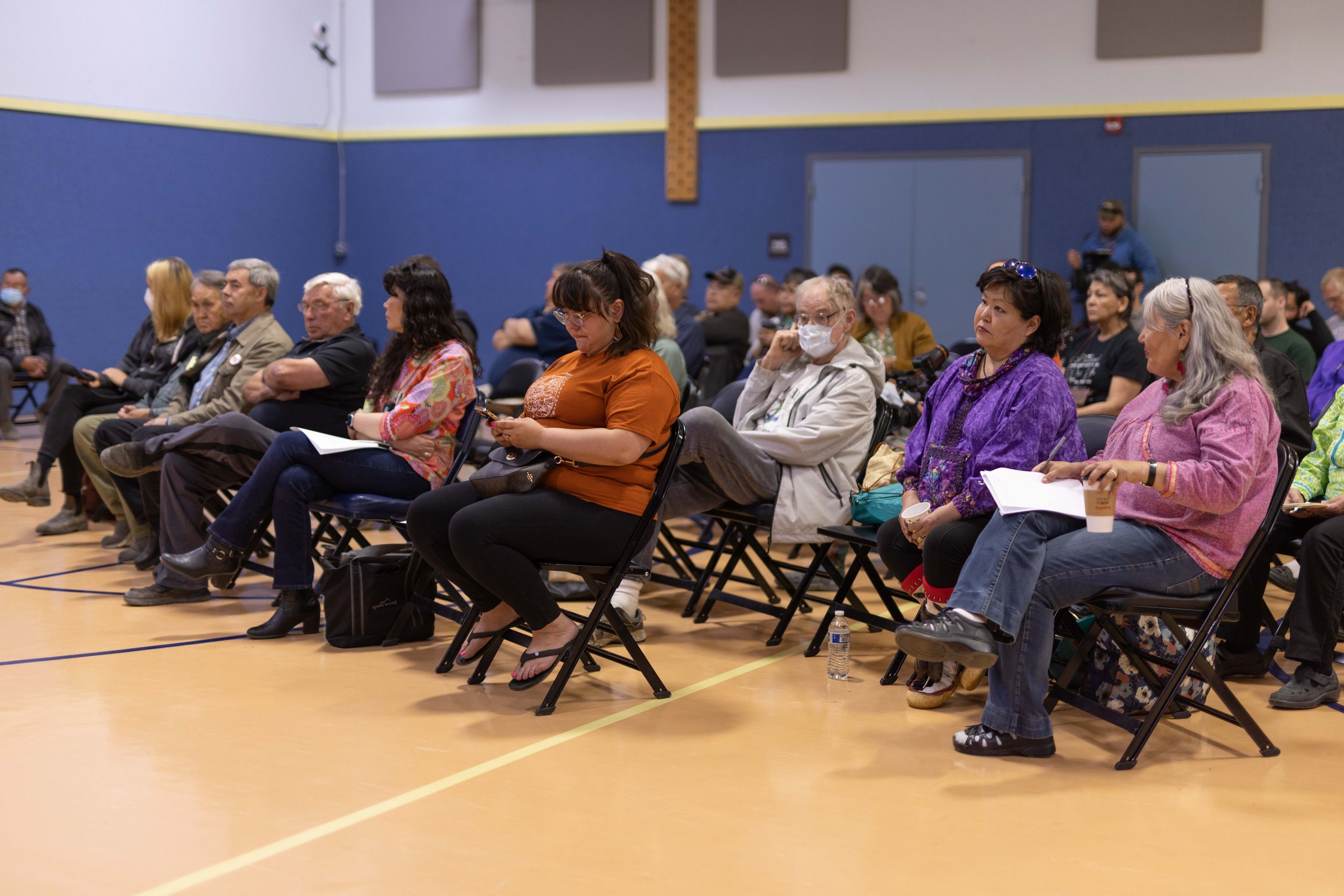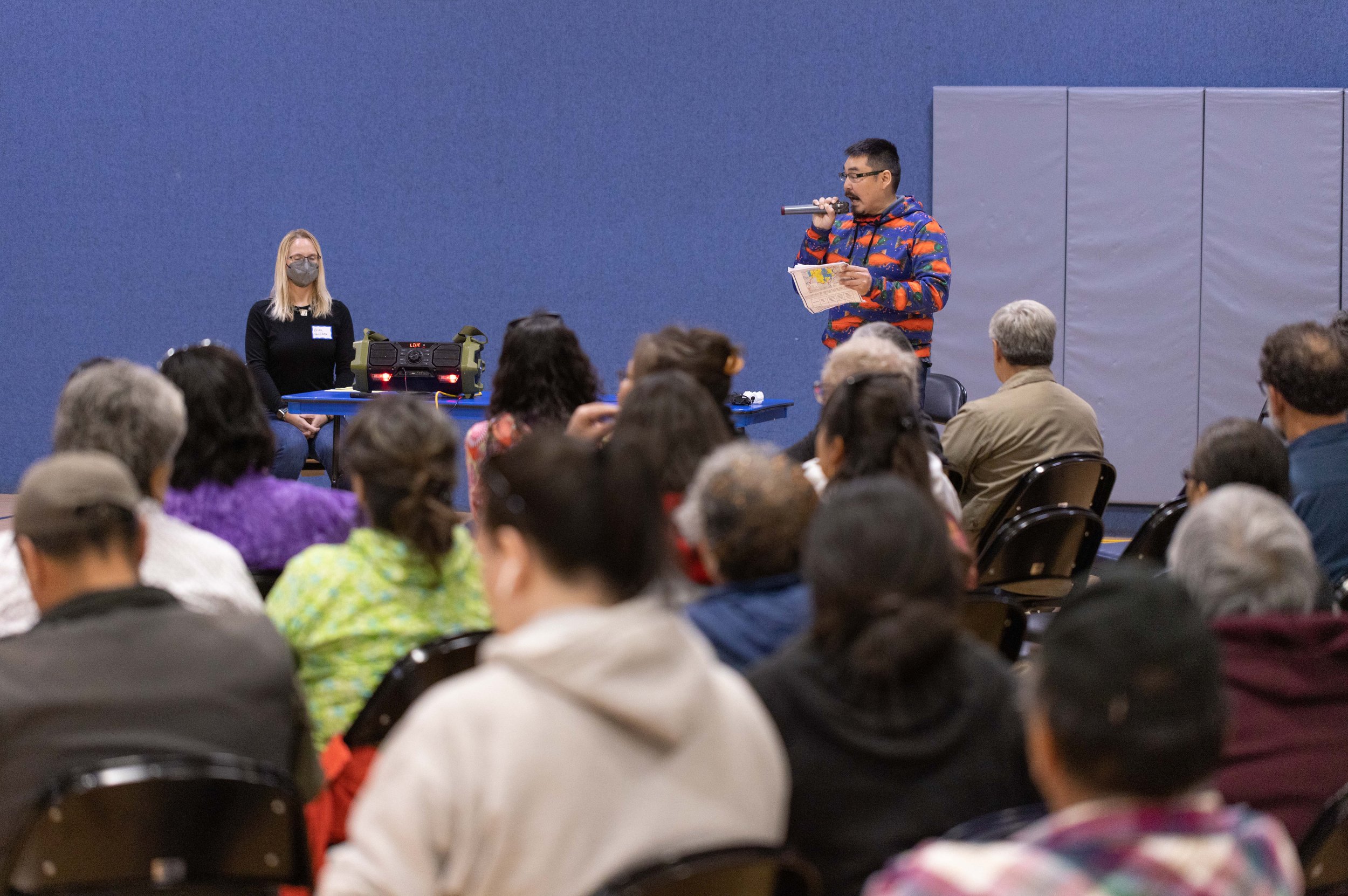More than 90 percent of Bristol Bay residents, fishermen, supporters urge EPA to finalize Clean Water Act protections at public hearings
FOR IMMEDIATE RELEASE
Friday, June 17, 2022
Contact: Alannah Hurley, ahurley@utbb.org or (907) 843-1633
More than 90 percent of Bristol Bay residents, fishermen, supporters urge EPA to finalize Clean Water Act protections at public hearings
DILLINGHAM – Nearly one hundred Bristol Bay residents and other supporters urged the Environmental Protection Agency (EPA) to finalize strong permanent protections for the region during the agency’s public hearings this week.
EPA held hearings in Dillingham, Newhalen, and virtually, regarding the revised proposed determination that outlines potential prohibitions and restrictions on the development of the Pebble Limited Partnership’s 2020 mine plan at the headwaters of Bristol Bay. During the three hearings, more than 90 percent of the public testimony supported EPA protections.
At the Dillingham hearing June 16, over 50 public testifiers from more than a dozen communities unanimously supported EPA using its Clean Water Act 404(c) authority to protect the headwaters of the fishery, calling for stronger protections than outlined in EPA’s current proposal.
“The people of Bristol Bay have been clear for decades: the EPA must protect our lands and waters for future generations,” said UTBB Executive Director Alannah Hurley. “No version of Pebble belongs in Bristol Bay’s headwaters and EPA’s action needs to stop this toxic project once and for all and these protections must be finalized this year.”
The EPA’s proposal would prevent Pebble from building the mine it proposed in 2020, putting about 15 percent of the deposit off limits, and would restrict development of the deposit at certain levels.
Bristol Bay leaders, fishermen, residents & supporters made the following statements in testimony:
Curyung Tribal Council First Chief and Dillingham resident JJ Larson: “It takes a lot to come out and speak to government officials about how much we don’t want this mine, how much it affects us, and how harmful it would be. …This mine would be the death of our culture. We’re not just fighting the mine, we’re fighting a spiritual fight. This mine would be the death of our way of life. …It’s not just the fish, it's the wildlife that surrounds the rivers that we subsist on. …The things that we do are go out and explore the land, when you’re not from here you might not understand that- but that’s what we do. And having a mine like this in our area would be so devastating.”
Koliganek Village Council member and resident Anu Wysocki: “We are the salmon people, the Indigenous people, of this land. We are the salmon capital of this world. There is no other place in this world that provides wild salmon like we do, and we want it protected. It is critical to our sustenance as human beings and way of life. You have an important decision to make. We want you to recognize the indigenous people, land and water rights, we want you to focus on traditional knowledge besides science and how we have coexisted with our environment for thousands of years. Our way of life, clean water, salmon and environment is priceless. We cannot put a value on it. It can’t be found anywhere else in this world. Science shows that the entire waters of our watershed needs to be protected.”
King Salmon resident Nanci Morris Lyon, Bear Trail Lodge owner: “My lodge is one of nearly 100 lodges and outfitters that generate $155 million dollars in economic output every year. I hire my guides and lodge staff locally, and they are included in over 2,300 jobs that are generated from Bristol Bay’s sportfishing industry. I’ve raised my family in Bristol Bay. …They would like to take over and continue to own and operate my lodge as a family business. If Pebble mine goes forward, I cannot in good conscience pass my lodge along to my kids because I know it will not succeed for them in that environment. I hope that you will finalize the strongest and most comprehensive protections for Bristol Bay through section 404(c) of the Clean Water Act as soon as possible so that my family has some security to look forward to in their future and the future of Bristol Bay.”
Dillingham resident Gayla Hoseth: “Our people are of this land, our people have stood the test of time, our people will always say, we are the people of Bristol Bay. Hear our voices and hear us loud, we stand strong and we stand proud. Standing firm on sacred ground, we will fight to protect this land. To protect the waters and the streams, as it has given life to me, the life the water continues to grow, as it has done so many years ago. Hear our voices and hear us loud, we stand firm and we stand proud, we will fight to protect this land, we will continue to fight to protect this land. Thank you for hearing us today.”
Bristol Bay fisherman Mark Niver, on the region’s 130-year old commercial fishing industry which supports thousands of jobs and generates $2.2 billion in revenue each year: “The Bristol Bay fishery is the largest red salmon run in the world. This year we're gonna top over 70 million salmon, and this will continue if we just leave the watershed alone.”
The EPA is taking written comments through July 5. A recording of the hearing is available on UTBB’s Facebook page in two parts: one and two. Additional photos from the hearing are in this dropbox folder.
